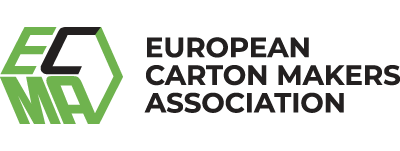Feedback on the Commission roadmap on illegal logging – evaluation of EU rules
- Acknowledgement of forest certification schemes in the risk assessment and risk mitigation
- Extension of the product scope
- Consistency in the enforcement
The European paper and board industries welcome the upcoming fitness check to evaluate the key legal instruments of the FLEGT Action Plan, namely the FLEGT Regulation and EUTR. Legally sourced, certified primary raw materials from sustainably managed forests are prerequisite for the European paper and board industry.
EUTR helps to secure legal sourcing of products sold on the European market. Illegal logging blemishes the reputation of the forest-based industries and the image of wood fiber-based products. It is not acceptable that the reputation of European companies is tarnished because of illegally sourced imported products put on the European market. Moreover, it is important that European consumers can trust that any wood fiber-based products found on the European market have been sourced legally.
We would like to highlight that wood and a large part of wood-based products are already covered by EUTR. The pulp and paper industry, as operators or traders under the Regulation, have already put in place the required due diligence systems for the wood or wood-based products that they are placing on the European market. As the industry sees legality only as a first step, but actually supports sustainable forest management by sourcing largely from certified forests, the forest certification schemes are a central point in the industry’s risk management and risk mitigation procedures. The role of forest certification, as tools to verify the legal origin of raw-materials, should be better acknowledged when evaluating needs of possible revision of the EU legislative framework. Concerning the recognition of forest certification, there is also a need to ensure consistency with any proposals to further address deforestation.
Regrettably, several wood fiber-based products are not yet in the scope of the Regulation. Millions of euros worth of wood fiber-based products are therefore still entering the European market without any assurance on their legality. Further development of alternatives for fossil-based products might lead to greater volumes of imports outside the EU.
Consequently, the current exclusion of certain product categories not only creates a significant environmental loophole in the Regulation but it also distorts competition between wood fiber-based products produced in the European Union with compliant raw material and wood fiber-based products made outside the European Union which can be freely imported and placed on the European market regardless of whether the raw material for them has been sourced legally. Therefore we see an urgent need of extending the product scope of the Regulation.
The European Union should ensure that wood fiber-based products on the European market are free from illegal logging regardless of their origin. We therefore call on the European Commission to revise without further delay the scope of EUTR and extend it to wood fiber-based products, such as printed matter, which are so far not covered.
Furthermore, the European Commission should coordinate more consistent enforcement of the EU Timber Regulation between different Member States. Commission guidance has not solved the issue so far. It is regrettable that e.g. the recognition of forest certification as one of the means to demonstrate legal sourcing varies strongly depending on the Member State.
We would like to thank you for your consideration and we remain at your disposal for further discussions on this matter.
Download the whole document here.
For more information, please contact:
Ulrich Leberle
Raw Materials Director at Cepi
ulrich.leberle@cepi.org
